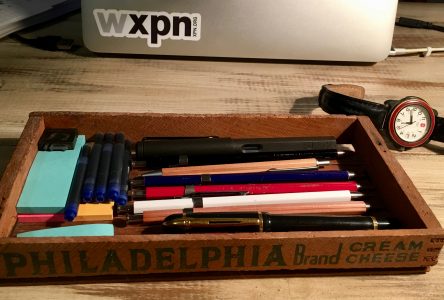Jenny Odell introduces herself as an artist and a writer. Simply googling her name will lead you to her website where she displays many of her works. We focus on her book How to Do Nothing and straight away explore Odell’s thoughts. But this writing is not chaotic and distracted like many first-time readers might see. Odell’s project focuses on presenting her personal experience and interactions to allow readers to see the world again, renewed and does so by revealing how real situations can be perceived differently.
Odell also wants readers to find distractions from everyday life that allow for thinking and processing of meaningful topics. Literally the first page of the introduction, Odell explains that readers “still recognize that much of what gives one’s life meaning stems from accidents, interruptions, and serendipitous encounters: the ‘off time’ that a mechanistic view of experience seeks to eliminate,” showing off to readers that this book will be challenging the thoughts that are not often questioned(ix). This idea that readers already know what gives life meaning also questions why Odell would write this book. Readers become intrigued that somehow, they already know an idea but, with Odell’s help, can explore the idea further. And throughout the introduction and first chapter, readers will be reminded that life’s meaning is right in front of them.
Odell want readers to truly see the world. Often, readers today are distracted by their phones and laptops by social media and other recent inventions. Odell reflects on how she grew up in the San Francisco Bay Area, saying that the area “is known for two things: technology companies and the natural splendor” and leads to how she explored both worlds(xiii). This variety of worlds in her vicinity growing up allowed Odell to experience “a lot of time inside … But on other days my family would go for long hikes,” giving readers the first taste of how they should distract themselves and explore(xiii). These introduction pages of How to Do Nothing only begin to explain Odell’s passion for opening readers to the idea of
A majority of How to Do Nothing is responding toOdell’s experiences. From when she learned about the Redwood trees, to finding herself in the middle of a garden, Odell fills her writing with experience. One that stands out is when Odell mentions her father. It turns out that Odell’s father had his own period that revolved around him exploring his surroundings. “[Odell’s father] read a lot, rode his bike, studied math and electronics, went fishing, had long chats with his friend and roommate, and sat in the hills, where he taught himself the flute,” all of which were meant to show readers how drastic Odell’s father went after quitting his job(10). Odell ties in her father’s story by explaining that his experience was like her own and allowed him to understand “that a lot of his anger … had more to do with him that he realized” and finally understood that if he spend more time figuring out what he needed, he would have been happier.
Odell finds that she is drawn to natural places, like exploring the Morcom Amphitheatre of Roses in Oakland, California and reading about the history of locations like the Old Survivor in the East Bay Hills. Odell also enjoys focusing on groups who support benefiting or affecting individuals, like the Federation of Organized Trades and Labor Unions and the volunteers at the Rose Garden.
After extending the description of those examples, Odell connects them to her ideas and goals of her writing. For Odell, these places and ideas “[encompass] everything I wanted to cover: the practice of doing nothing, the architecture of doing nothing, the importance of public space, and an ethics of care and maintenance”(3). While Odell’s book might seem like a stream of consciousness, after readers examine the ideas Odell has put forth, the goal is obvious.
Before we even finish Odell’s How to Do Nothing, readers have been on a roller coaster. Odell’s presents stories and vivid imagery that allows readers to see just how Odell views her surroundings. And Odell does not just leave readers with images, she provides ideas for readers to think and discuss with themselves. Obviously, Odell has given many hours productively preparing this writing project. However, I believe that Odell is not a hypocrite. I am sure that for as much time that Odell spent working and stressing, she spent that same amount of time processing, exploring, and allowing herself to view places and things that were always there but that she never truly saw.









